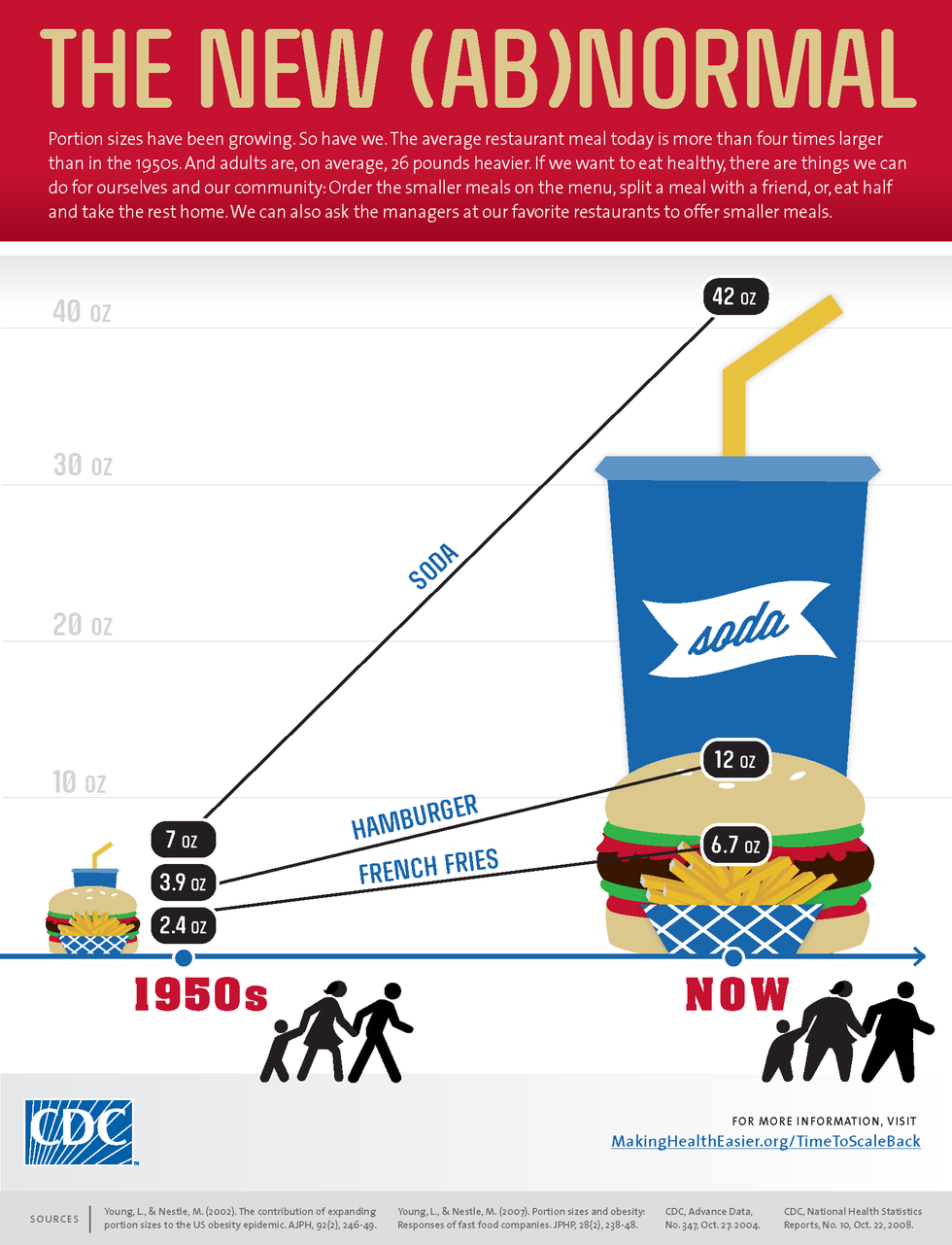Recently, a British medical journal titled the "Lancet" published a report that bluntly stated that the amount of obese people in this world have surpassed the amount of malnourished people. It's a remarkable statistic, one that places obesity above hunger in the context of global problems.
It's an issue that has been expanding outside of American borders as well, despite its alleged roots in Western ideology. However, there is no doubts that obesity reigns supreme in America, where more than two in three adults are considered to be overweight or obese. It's an issue that encompasses about one-third of children and adolescents ages six to 19 -- subjecting them to its tenacious ascendancy as well. It's an issue that has increased in great magnitude, leaving obesity rates on a 50 percent rise through the past 20 years. Diabetes, heart disease, stroke, hypertension, dyslipidemia, and sleep apnea (to name a few) plague millions of Americans annually -- chronic illnesses and complications that directly coincide with obesity. America is experiencing an abnormal influx of approximately 5,089 diagnosed cases of type two diabetes in youth each year -- a number that is projected to increase.
The question America is struggling to properly address is not whether obesity is a national epidemic of monstrous proportions -- because it is clear that it is. The real question lies within the party most responsible, to the scapegoat most deserving of our condemnation.
For many, the party responsible is the obese people themselves. It's an easy solution to the most simplistic of equations. This theology falsely abides by false perception that obesity is strictly a self-inflicted disease.
And while many obese Americans have decisively dug their graves and planted their tombstones through ramen noodle dinners and sedentary habits, many are powerless to the obesity that grips them.
Obesity is a multifactorial disease, meaning it is attributable to a variance of causes. And while lifestyle choices certainly contribute to obesity, it isn't the only factor in this complex disease. Many metabolic, psychological, and genetic factors cause obesity, rendering some more susceptible to weight gain and resistant to weight loss. Certain thyroidal imbalances and abnormally high levels of the stress hormone, cortisol, can lead to obesity as well. Certain prescription and non-prescription medications can slow one's basal metabolic rate, in turn stimulating hunger and overeating habits.
So who is deserving of the blame?
The American food industry.
We live in a world where fast-food restaurants reign supreme, healthy foods come with hefty price-tags, and GMO's and artificial substitutes are commonplace within our daily diets. Portion sizes exceed our recommended daily caloric intake, often exceeding our stomach capacities.
Dinner entrees served at restaurants are paired with two to four sides. Smalls are now mediums, and mediums larges. Snacks are more accessible with the popular inclusion of vending machines. Everywhere we look, food is staring back at us, willing us to fall for its taunting propaganda. It's inescapable.
Accessibility is a key component to the food industry's role in obesity. It's far easier and far more alluring to hop in your car and drive a mile down the road to the nearest fast-food restaurant and tell a monotone-voiced employee your order. The only inconvenience marring this otherwise perfect endeavor is the short wait you must undergo, which pales in comparison to the tedious process of grocery shopping and preparing a meal. It's a process many Americans refuse to participate in, believing it's place in the midst of their busy, chaotic lives as worthless and insignificant. So for the sake of convenience, we consciously eat food we know is bad for us. We eat food pumped full of steroids, hormones, artificial flavors and ingredients, sodium, and fat. We consume empty calories and foods that do not constitute what is deemed nourishing. This is followed by sucking down copious amounts of sugar and overly-acidic syrups through bendy straws -- a deadly culmination that leads to fat build-up, poor mineral absorption and digestion, and breakdown of calcium.
Price is also an integral aspect. Many Americans prefer the cheap prices of dollar-menu burgers and $5 pizzas to the daunting price-tag of organic fruits, vegetables, and fresh meats. In a world of rising grocery prices, fast-food restaurants have managed to maintain their low prices with alarming restraint and consistency. One-hundred dollar grocery bills don't correspond with full grocery carts as they once had, rendering prepared meals a costly endeavor. For many Americans, it's an easy choice, undeserving of a moment's hesitation. Low prices will always trump healthy foods, especially when your pay-scale does not permit you the ease of purchasing healthy foods. This choice has proven disastrous -- represented in the spiking obesity rate.
Even the foods available to us as consumers is not good, authentic food. The food market is constantly being flooded with new artificially-packed foods, leaving consumers with few healthful options to choose from.
It is becoming harder and harder to eat healthy in the world we live in, and for an overwhelming majority, the battle is one not worth fighting.
However, it is important to remember that obesity isn't always a self-inflicted condition -- it's a condition with many complexities and factors. It isn't a black and white issue nor is it something we can explain away with harsh labels and scrutiny. It's a valid medical condition, which deserves valid medical analysis. So remember that next time you see an obese person and simple solutions such as "why don't they just hop on a treadmill" flash through your mind.
As long as the food industry is the way it is, obesity will not be eliminated or fought -- instead, it will thrive with great momentum.




















